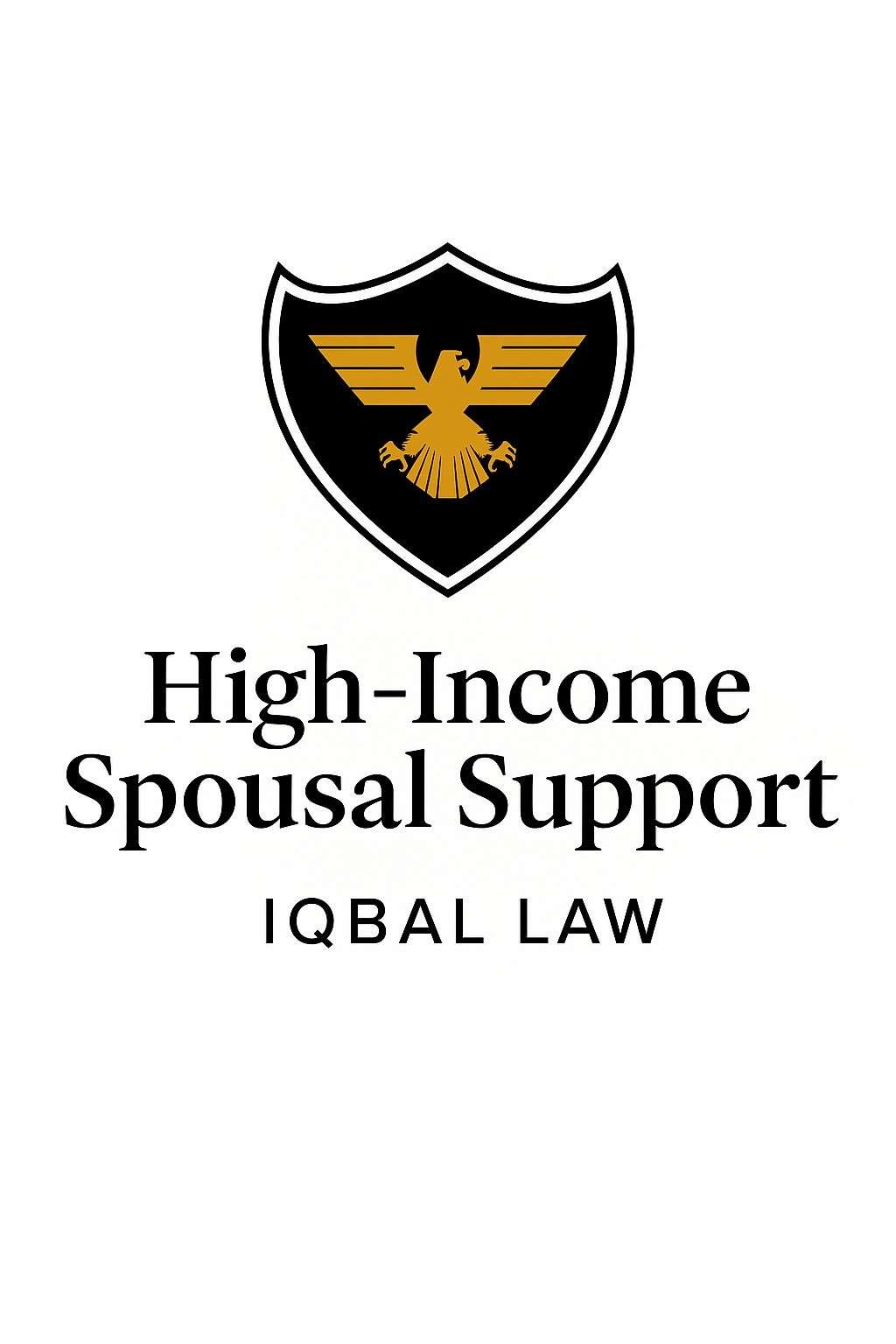
High-Income Spousal Support: Understanding fairness in Ontario family law. By Iqbal Law
When high-income couples separate, spousal support often becomes a contentious issue. A recent Ontario Court of Appeal decision provides important guidance on how courts assess spousal support entitlement, duration, and income sharing when both spouses earn substantial incomes.
This case highlights how courts balance fairness, compensatory principles, and post-separation income in long-term marriages.
Background of the Case
The parties were married for 14 years. The husband was a successful financial advisor, while the wife was a respirologist. During the marriage, the wife reduced her professional workload to part-time hours in order to focus on childcare and household responsibilities. This allowed the husband to advance his career and achieve significant financial success.
After separation, the wife had primary care of their two daughters, aged 19 and 17 at the time of the appeal. The husband paid interim child and spousal support while the litigation continued.
Trial Decision
At trial, the judge ordered the husband to pay $20,000 per month in spousal support for 9.5 years, in addition to child support. The trial decision also dealt with equalization, parenting, and property division.
The judge emphasized that spousal support was justified not only on compensatory grounds (to recognize the wife’s contributions during the marriage) but also on non-compensatory grounds (to address the economic interdependence that developed during the marriage).
Appeal to the Ontario Court of Appeal
The husband appealed, arguing that:
- The wife was not entitled to support because she had a high imputed income and did not suffer economic disadvantage.
- The trial judge erred in the quantum and duration of support.
- The judge wrongly included post-separation income increases in the support calculation.
- Prejudgment interest on the equalization payment should not have been awarded.
The wife responded that the appeal was simply an attempt to reargue findings that were well supported by the evidence.
Key Legal Issues
The Court of Appeal addressed four main questions:
- Did the trial judge err in finding the respondent entitled to spousal support despite her imputed income and lack of economic disadvantage?
- Did the trial judge err in determining the quantum and duration of spousal support?
- Did the trial judge err in including the appellant’s post-separation income increases in the spousal support calculation?
- Did the trial judge err in awarding prejudgment interest on the equalization payment?
Court of Appeal’s Findings
- Entitlement to Spousal Support
The court upheld the trial judge’s finding that the wife was entitled to support. Even though she earned a significant income, her decision to work part-time allowed the husband to focus on his career. This created a financial interdependence and justified both compensatory and non-compensatory support.
The court clarified that a lack of obvious economic disadvantage does not bar entitlement—support can also recognize the advantages conferred on the other spouse during the marriage.
- Quantum and Duration
The court found that the trial judge properly applied the Spousal Support Advisory Guidelines (SSAG). Support was set at the low end of the SSAG range, reflecting the wife’s own high income and moderate compensatory claim.
The 9.5-year duration was considered fair, given the 14-year marriage and the wife’s contributions.
- Post-Separation Income Sharing
The court agreed that the husband’s post-separation income increases could be factored into the calculation. The wife’s sacrifices during the marriage supported his career trajectory, which justified partial sharing of that growth.
Importantly, the court emphasized that using the lower end of the SSAG range struck a fair balance.
- Prejudgment Interest on Equalization
The court confirmed that awarding prejudgment interest on the equalization payment was consistent with the Courts of Justice Act. This encouraged timely settlements and ensured fairness, as the husband had the benefit of holding on to funds that rightfully belonged to the wife.
Outcome of the Appeal
The husband’s appeal was dismissed in full. He was also ordered to pay $22,500 in costs for the appeal.
Key Takeaways for High-Income Spousal Support Cases
- Entitlement exists even where both spouses earn well if one spouse’s sacrifices supported the other’s career.
- SSAG remains the key tool for assessing spousal support, with adjustments for fairness in high-income cases.
- Post-separation income increases may be shared, especially where one spouse’s career growth stems from sacrifices made during the marriage.
- Prejudgment interest is the norm on equalization payments and discourages delay.
Final Thoughts
This decision underscores that spousal support is not just about need—it is also about fairness, contributions, and interdependence. High-income cases require nuanced analysis, but courts remain guided by compensatory principles and the SSAG.
If you are facing separation or divorce involving significant incomes, it is crucial to seek legal advice. Understanding how courts approach entitlement, duration, and income sharing can help you prepare for negotiation or litigation.
👉 Need advice on spousal support or property division in Ontario? Contact IQBAL LAW today for a consultation.